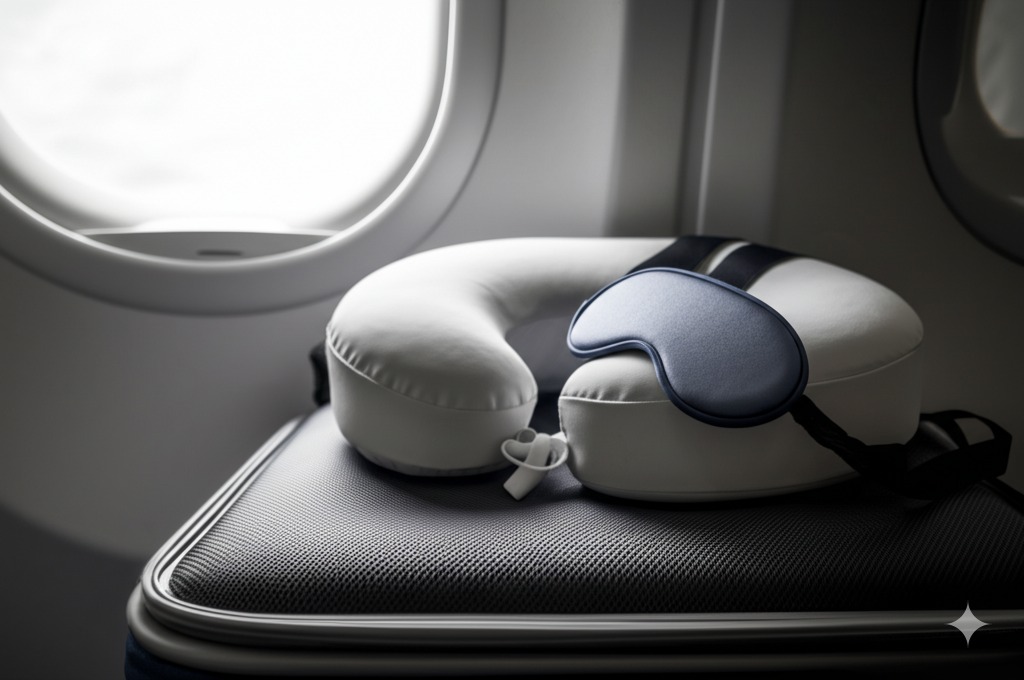Sleep Soundly on the Go: Tips for Better Sleep While Traveling

Traveling can be exciting, but it often comes at the cost of good sleep. Unfamiliar environments, disrupted routines, jet lag, and uncomfortable beds can leave you feeling groggy and unable to fully enjoy your trip. Fortunately, with a little preparation and some smart strategies, you can significantly improve your sleep quality while away from home.
Before You Go: Preparation is Key
Setting yourself up for success starts before you even pack your bags:
- Adjust Your Schedule Gradually (for Jet Lag): If crossing time zones, start shifting your bedtime and wake time by 15-30 minutes each day towards your destination's time zone a few days before departure.
- Research Your Accommodation: Check reviews for comments on noise levels or bed comfort. Request a quiet room away from elevators or street noise if possible.
- Pack a "Sleep Kit": Include essentials like an eye mask, earplugs, a travel pillow, and perhaps familiar pajamas or a small blanket.
- Prioritize Sleep Before Leaving: Avoid starting your trip already sleep-deprived. Aim for good sleep in the nights leading up to your travel.
During Travel: Navigating Planes, Trains, and Automobiles
Sleeping while in transit can be challenging, but these tips can help:
- Stay Hydrated: Drink plenty of water, especially on planes, but avoid excessive fluids right before trying to sleep.
- Limit Caffeine and Alcohol: These can disrupt sleep patterns, especially during travel.
- Use Your Sleep Kit: Don't hesitate to use your eye mask, earplugs, and travel pillow to block out light and noise and get comfortable.
- Move Around When Possible: On long journeys, get up and stretch or walk around periodically to prevent stiffness and improve circulation.
At Your Destination: Adapting and Optimizing
Once you've arrived, focus on adapting to the new environment and routine:
- Get on Local Time Immediately: Resist the urge to nap excessively upon arrival (unless it's nighttime). Eat meals and go to bed according to the local schedule.
- Use Light Strategically: Expose yourself to bright light (preferably sunlight) in the morning and during the day at your destination. Avoid bright light in the evening.
- Make Your Room Sleep-Friendly: Use blackout curtains (or your eye mask), control the temperature, and use earplugs or a white noise app if needed.
- Bring Comforts from Home: If feasible, bring your own pillowcase or a small travel blanket. Familiar scents can also help.
- Stick to Your Bedtime Routine: Try to replicate your usual pre-sleep rituals as much as possible.
- Consider Melatonin (Carefully): If dealing with significant jet lag, taking a low dose of melatonin before your new target bedtime might help, but consult your doctor first.
Be Patient
It can take a few days to fully adjust to a new time zone or environment. Don't stress excessively about lost sleep, as anxiety can worsen the problem. Focus on implementing these strategies consistently.
While travel inevitably disrupts routines, it doesn't have to ruin your sleep. By planning ahead, packing smart, and making conscious choices during your trip and upon arrival, you can minimize sleep disturbances and maximize your energy and enjoyment. Sweet dreams on your next adventure!



